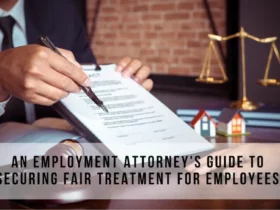Folks, it’s not just the humidity that’ll get you this hot season. This summer, which is expected to be a scorcher that’ll bring all-time high levels of pounding heat, may have consequences beyond the usual suspects like heat stroke and dehydration. It could affect your mental health as well.
Seasonal depression is often associated with winter blues and cabin fever, usually seen in places like New England, Seattle, or Alaska. Heat-related depression is a real mental issue experienced by folks in summer and spring, particularly in warm weather places like Texas.
Persons with reverse seasonal affective disorder (RSAD) can manifest symptoms like insomnia, loss of appetite, and a general sense of sadness. These symptoms can lead to depression, but usually graduate to mania. The manic feeling is characterized by delusions, euphoria, excitement, and hyperactivity.
On the flip side, people with seasonal affective disorder (SAD) during the cold weather have depressive symptoms like the desire to sleep all the time, weight gain, sugar cravings, and increased appetite.
In a study published in the journal International Journal of Environmental Research and Public Health, investigators concluded that the mechanism that regulates body temperature might also interrupt the release of serotonin and dopamine. Summer also means more daylight hours, less sleep, poor air quality, and all the allergens that can affect your mental and physical well-being.
Whatever the reason, many observational studies have noted a marked increase in mental health hospitalizations during heat waves. It’s not something you’d want for your hot girl or hot boy summer!
To help you have a depression-free summer, we’ve put together tips to help if the heat mentally impacts you.
Timing is crucial when going outside
Summer is a good time to take a stroll, go to the beach, and meet people. So get out there whenever you can. But timing is a factor in avoiding the brunt of the heat waves, so venturing outside late in the evenings and early in the mornings can do the trick.
Hydrate, rehydrate—repeat
This one is a no-brainer, of course. The heat will get you sweating like crazy, so drink plenty of fluids. The rule of thumb, according to HuffPost, is to drink “half your weight in ounces.” That means if you weigh 160 lbs, you should drink at least 80 ounces (around 2.5 liters).
Avoid alcoholic or sugary drinks when you rehydrate. They might interfere with your body’s ability to regulate heat, and that’s another recipe for a heat stroke. Meanwhile, extremely cold drinks can result in stomach cramps.
Since you’re sweating out lots of salt, replenish with some Gatorade or your favorite sports drink. Always check with your doctor or dietician if you’re on a salt or fluid-restricted diet.
Stay connected
Being lonely can worsen RSAD symptoms. Keep in touch with friends, colleagues, and loved ones. You can schedule play dates for your children as they can feel isolated from school friends and peers.
Going out during the hottest hours of the day is a big no
The last thing you want to do is go out in the heat of the day. Heat stroke, heat exhaustion, and dehydration can create the perfect storm for heat-induced mental health issues.
Stay active indoors
Nothing worsens depressive symptoms quite like a sedentary lifestyle. So stay active even if you have to be indoors. You can do house chores, play indoor-friendly games like ping pong, or work out at the gym. Prolonged inactivity can result in restlessness, feeling trapped, or depression.
Don’t be afraid to reach out for help
If you feel RSAP or depression is interfering with your quality of life, don’t hesitate to reach out for therapy. As more are seeking help, new mental health practices are opening to help too, like recently opened Geode Health in Frisco, Texas. Be sure to check with your employer or insurance company about what’s covered and which mental health specialists you can see.
Get enough Zzzs
Longer daylight hours can interfere with your body’s natural clockwork. After all, the sun may rise at 5 a.m. and set at 9.30 p.m. Adhere to your normal sleep routine—invest in black-out curtains, blinds, and shades.
Stay busy
Without the structure of school or preparing kids, it’s easy to lose your day and perhaps your life throughout summer. Instead of going with the flow, give yourself something to keep you busy. For most people, indoor projects, volunteering, and exercising can fill the day and prevent you from going down a mental health spiral.
Stick to healthy, regular meals
You may not feel like whipping up something in the kitchen when you’re sweating, but that doesn’t mean you should stuff yourself with take-out, junk food, and snacks. Instead, up your veggie game, load up on fruits, and stick to lean proteins to keep your brain humming.









